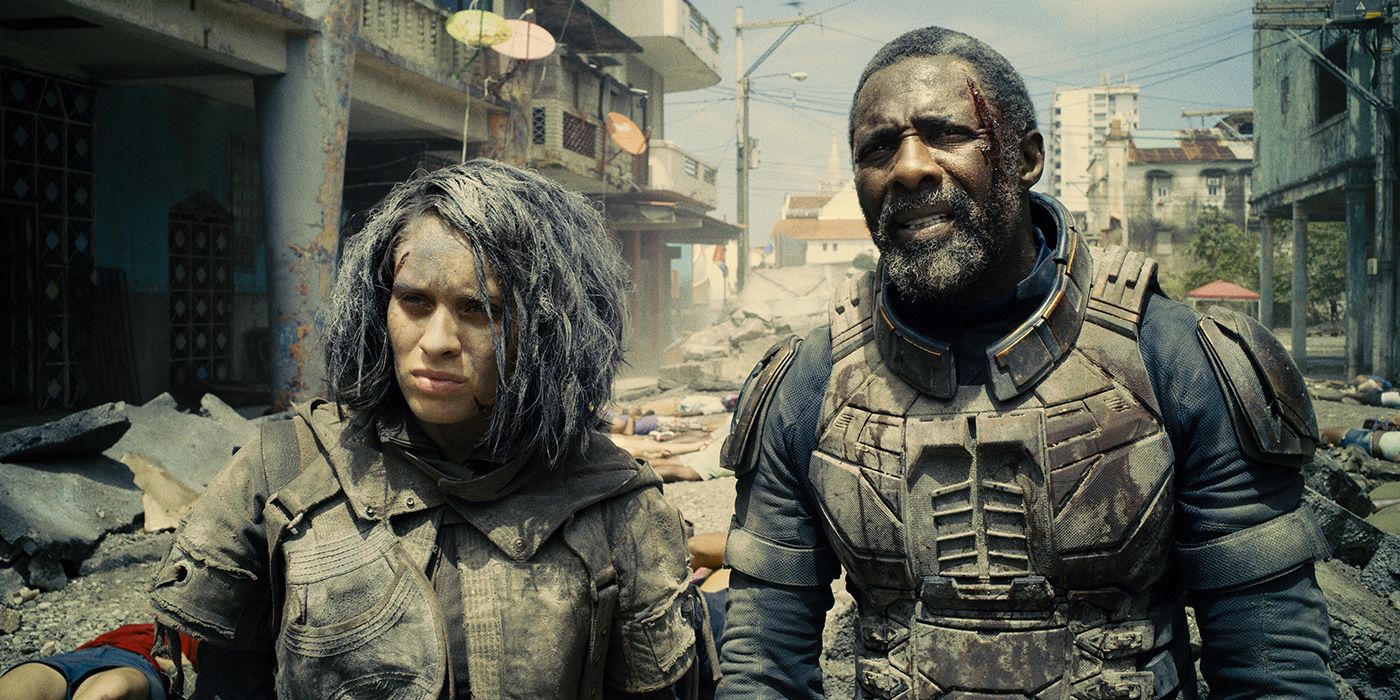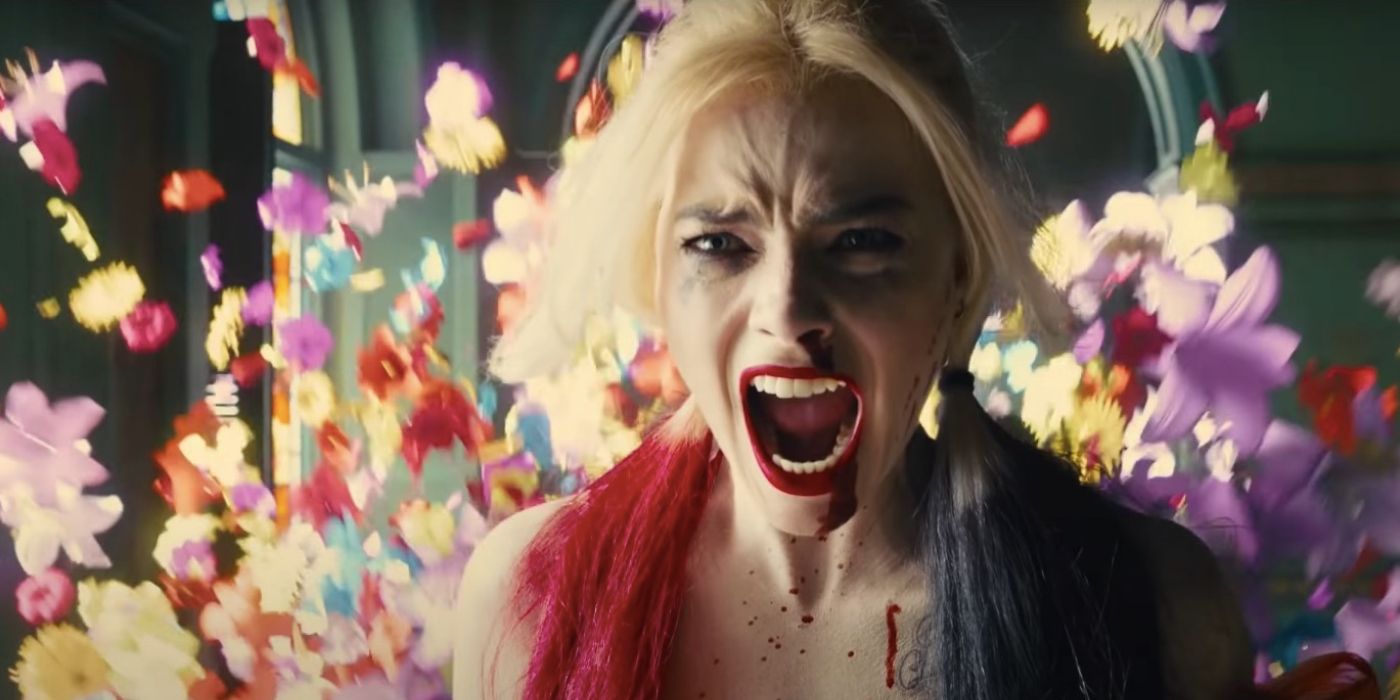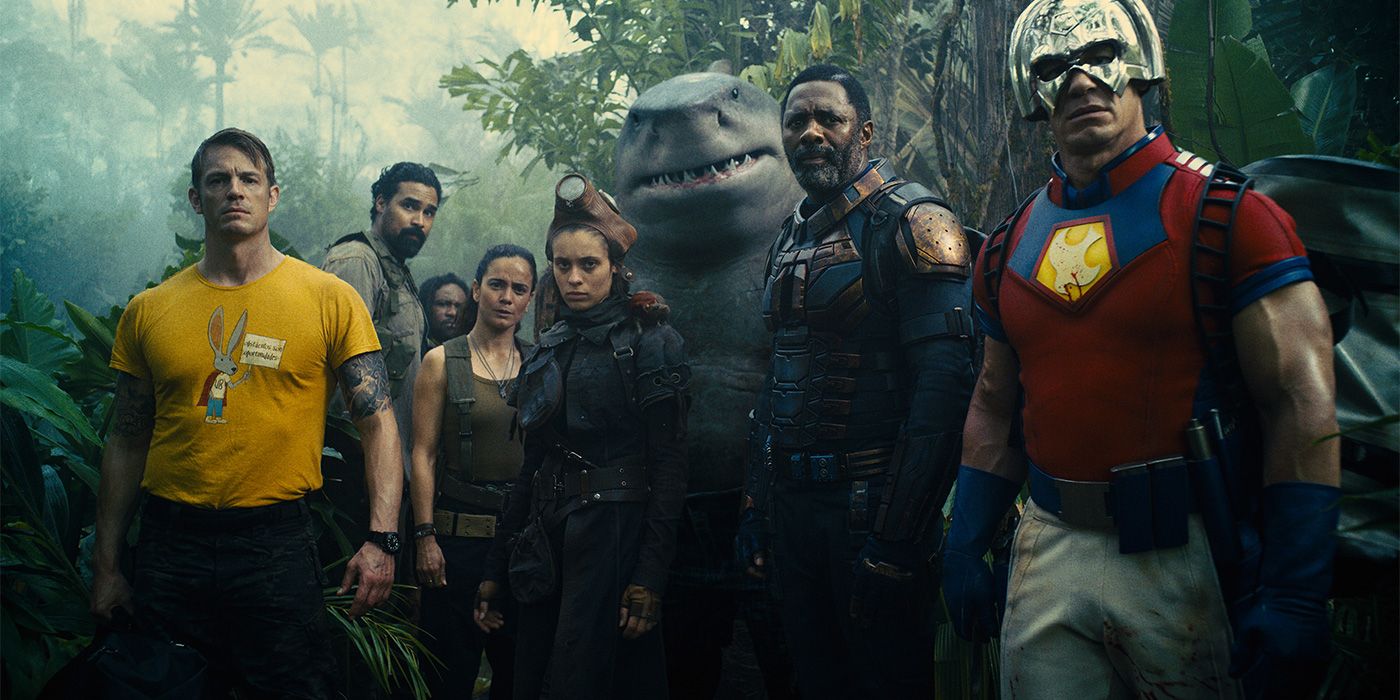[Editor’s Note: This article contains spoilers for The Suicide Squad.]The Suicide Squad isn’t just another comic book film. The violence and bloody gore aside, this film sets out to send a message. The real villains, this film categorically states, aren’t Task Force X (the titular Suicide Squad), nor are the corrupt Corto Maltese government. The enemy is Imperialism. Task Force X and even the evil Argus head Amanda Waller (Viola Davis) are simply weapons in this omniscient being’s hands. But does the film follow through with this statement?
The Suicide Squad follows a group of supervillains—the Suicide Squad—forced to complete a mission in Corto Maltese, the DC Comics stand-in for an unstable South American nation. While it starts out as a standard comic book film, partway through the story, the writing attempts to grapple with the idea that the American military, and American ideology, aren’t always welcome. The Suicide Squad are essentially an arm of the American military intervening in a country that didn’t ask for their help. There are Corto Maltese resistance fighters ready to overthrow the corrupt new president, that is until Task Force X annihilates dozens of them in an attempted rescue mission. Where another film may have brushed off the many innocent casualties, in The Suicide Squad resistance leader Sol Saria (Alice Braga) does not mince words about the shoot-first-ask-questions-never attitude of Americans.
As soon as it appeared that the film would see the squad work with the resistance to save the country, though, Sol and her team were sidelined. Instead, the film focused on Harley Quinn (Margot Robbie) and her doomed romance with Presidente General Silvio Luna (Juan Diego Botto). The new Corto Maltese president staged a coup and killed his predecessor, and now he has control over Project Starfish, an extraterrestrial being named Starro whose mind-controlling spores are used to experiment on unsuspecting Corto Malteseans. Admittedly, Luna is a despot who deserved to be deposed, but instead of Sol getting her revenge and saving her nation, it’s Harley who shoots Luna because of her own “red flags.” Harley makes the right decision but in the wrong context. Luna’s death gives power to an even worse megalomanic, Mayor General Mateo Suarez (Joaquín Cosio). And this is where the film falters.
The Suicide Squad isn’t the first comic book adaptation to tackle real-world issues—The CW’s Supergirl and Batwoman have both tackled racism and immigration issues in the past, and even the film’s spiritual predecessor, Birds of Prey, used Gotham as a microcosm for gender imbalances. What sets The Suicide Squad apart from many of its contemporaries is how it confronts the issue openly. The characters bluntly call out the USA as the real bad guy. Project Starfish appears to be a direct throwback to America’s reported collaboration with the Nazis during and after the Second World War—as Task Force X found out, the American government was behind the project all along. The film also makes a mockery of Peacemaker’s (John Cena) understanding of peace. As he says, “I cherish peace with all of my heart. I don't care how many men, women and children I kill to get it.” The real mission of The Suicide Squad is to destabilize a nation that’s getting in America’s way—it’s an uncomfortable watch. Unfortunately, the film stumbles at the last hurdle.
Diegetically, it makes sense that the Suicide Squad enjoy killing sprees and are apathetic to everyone else, especially the Corto Malteseans. They’re villains, after all, and we can make the argument that the characters in The Suicide Squad are not meant to make altruistic decisions. Them turning back to save Corto Maltese in the final act exemplifies the growth of character they’ve gone through, specifically Ratcatcher II and Bloodsport, over the course of the film.
In the closing moments of the film, the squad themselves, plus the Argus operatives who knock out Waller before she can blow up the team, choose not to toe the company line. But at what cost? The prolonged battle scene in the main city shows countless thousands of Corto Malteseans being “Star-crossed” by Starro’s spores and left for dead. The squad don’t bring out the big guns (i.e. the rats) until their own lives are in danger. This is understandably in character for the Suicide Squad since they’re villains; they have no moral code, and the third act portrays their evolution into regaining a semblance of humanity. The trouble is that while the Starro battle makes sense within the context of the story, the same kind of scene has played out numerous times before in Hollywood films. It reinforces the idea that the Corto Malteseans—as stand-ins for Latin-American people—are not worth the trouble in the eyes of Task Force X. The film seems to suggest that an underdeveloped nation and its people are expendable as long as our protagonists get to be heroic.
The film also failed to challenge the celebration of American interventionism. The resistance successfully stormed the capital to overthrow the government, but we hardly saw them on screen working in tandem with Task Force X to win back their nation. Within the story, we know that the two teams worked together for the resistance to succeed, but would the resistance have remained in power had Starro not been defeated by the squad? Granted, we can’t expect one film to address everything wrong with Imperialism, but there was scope to color outside the lines by giving the resistance a little bit more agency. Instead, they were practically forgotten in what should have been their own story. Once Starro is destroyed, Bloodsport decides to hide the secret about the USA’s involvement with Project Starfish, but he does so for personal gain and without consulting the Corto Malteseans. The nation’s people, therefore, have no recourse for retribution despite the USA basically using them as a petri dish.
The Suicide Squad goes out of its way to demonstrate the Western savior complex of American military action. Yet, the film doesn’t quite subvert the trope, it merely highlights its real-world connotations. At the end of the day, without Task Force X, Corto Maltese would have still been governed by corrupt leaders who would feed the people to Starro. This idea is reiterated when the resistance vocally thanks the squad, specifically citing them as the reason Corto Maltese is free. This thereby undermines the film’s message about the problems with Imperialism, especially in the American context. Imperialism is bad when a film’s “villains” are pulling the strings, but when the characters we’re rooting for act, then it’s the ideal solution. But how can we judge who is a good apple and who’s the bad one?
There is no doubt that pop culture is growing up. Viewers aren’t interested in mindless entertainment and films like Captain America: The Winter Soldier and even Netflix’s unmemorable Outside the Wire have blatantly critiqued US military habits. The Suicide Squad goes a step further by bringing this issue to the surface, but the writing is still restrained. There’s something to be said about all these major studios attempting to explore the waters of socio-political criticism, yet they always seem too afraid to step out of their boundaries completely. Progress is great, but we need more.



